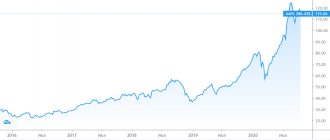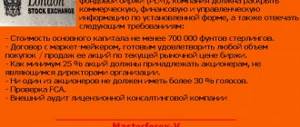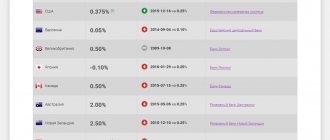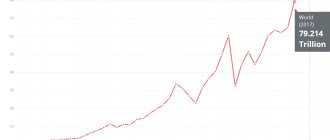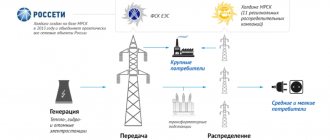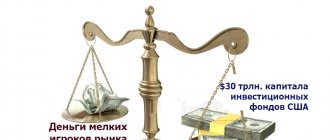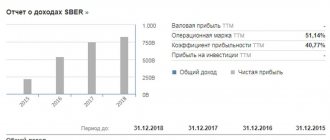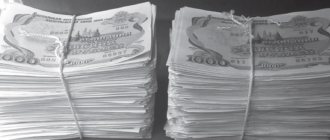A shareholder is the owner of shares in a joint stock company who has the right to receive profits from the company's activities in the form of dividends. This is an individual or legal entity who owns at least one promotion. Their different numbers give shareholders different rights when making decisions. Investors buy these securities for different reasons:
- for the sake of dividends ;
- making a profit on exchange rate differences (buy cheaper - sell more expensive);
- long-term investment (an alternative to a bank deposit);
- partial or complete takeover of a business (acquisition of a large block of shares).
Shareholders' rights
In Russia, shareholders are endowed with such rights.
- Owners of ordinary shares have equal rights. Those. no share entitles the holder to rights superior to another holder of the same share. Different rights arise only from the number of shares owned.
Their owners have the right to vote at shareholder meetings and the right to receive dividends. However, receiving dividends in this case is not guaranteed. The decision on accrual and amount is made at shareholder meetings.
Owners of ordinary shares have the right to part of the issuer's in the event of liquidation of the enterprise (but not priority).
It is not allowed to exchange ordinary shares for preferred shares, although they can be sold and preferred shares can be purchased if there is supply on the market.
- Owners of preferred shares are entitled to dividends. Unlike ordinary shares, their payment, as a rule, is always carried out and at a known rate. In Russia, preferred shares have different types, depending on which the size and conditions for receiving dividends are determined.
Unlike common shares, preferred shares do not give shareholders voting rights. An exception is situations when a decision is made not to pay dividends. In this case, in exchange, preference holders are temporarily given voting rights.
It is possible to exchange preferred shares for ordinary shares.
The shareholder receives dividends once a year or at other intervals. The decision on the timing of payments is made by the meeting of shareholders. Dividends for shareholders holding ordinary shares are not fixed; for preferred shares, as a rule, they are fixed. Often, owners of common shares receive smaller payments, as shareholders prefer to direct the bulk of profits to the further development of the company.
Conclusion : preferred shares are bought by investors aimed at receiving dividend income, ordinary shares are bought by small investors to make money on exchange rate differences, and large ones are bought for partial or complete takeover of the company.
Innovation in a financial institution
Sberbank has always tried to keep up with the times, improving the quality of service to its clients and trying to offer them innovative products. The financial institution has done a good job of providing its clients with the ability to manage their accounts remotely. Thanks to remote channels, such as Sberbank Online online banking and the Mobile Bank SMS service, distributing your funds and controlling financial flows has become much easier. Sberbank is the owner of the largest network of ATMs and terminals throughout the country. The active participation of the institution in various social programs that stimulate the development of national science and culture was noted. For the majority, it simply does not matter who owns Sberbank of Russia, since its management and owners cope excellently with all tasks.
General Meeting of Shareholders
The permanent management of the joint stock company is carried out by the board of directors, but the most important body is the general meeting of shareholders. This is understandable, because shareholders are the owners, or rather, co-owners of a joint-stock enterprise.
The general meeting of shareholders is a meeting of the owners of ordinary shares, since only they give the owners the right to vote. In some cases, the owners of preferred shares receive voting rights, and then they can also participate in the meeting.
Types of general meetings of shareholders:
- Next meeting – convened once a year, the holders of ordinary shares (in some cases also the holders of preferred shares) participate. They make decisions on the following issues:
- annual report;
- annual financial statements;
- approval of the composition of the board of directors;
- distribution of profits (what part should be allocated for development, dividends, etc.);
- issues of reorganization, liquidation, changes to the Charter, etc.
- Extraordinary meeting - convened during the year if it is necessary to urgently make a decision that requires the approval of shareholders. To participate in extraordinary meetings, you must own a certain percentage of shares.
Register of shareholders
Every joint stock company is required to maintain a register of shareholders. The following information is entered into it:
- registration address;
- how many shares and what type are owned;
- other important information.
Shareholders must notify the company of any changes to the data entered into the register. Replacement of information must be carried out within three days.
Responsibility for maintaining the register of shareholders rests with the issuer. If the number of shareholders is less than 50, the company itself can keep the register; if more, the register is transferred for storage to a professional participant in the securities market - the registrar.
Maintain a register of shareholders in paper or electronic form. The law allows both options.
Buying bank shares
How to become a shareholder in an enterprise such as a bank? You need to perform the same operations. In most cases, banks exist in the form of open joint-stock companies, and their shares are publicly traded on the market. To buy them, you need to contact a broker and open an account. It is necessary to take into account that often the bank itself acts as a broker, and it makes sense to make sure of this possibility, based on which particular bank a person wants to become a shareholder.
Shareholder – state
In some cases, the state acts as a shareholder, owning securities on behalf of its structures - ministries, state-owned companies, etc.
In what cases does the state become a shareholder:
- establishes a joint stock company;
- privatizes a state-owned enterprise, retaining a certain stake;
- buys back shares.
Why should the state become a shareholder:
- reorganization of a state-owned company to improve operational efficiency;
- maintaining full or partial control over a privatized enterprise;
- rescuing a private company from collapse caused by a crisis or poor management of the private owner;
- nationalization of private business.
Examples when the state is a shareholder:
- Gazprom Company – one of the world’s leading producers, transportation and sales natural gas. Owning more than 50% of its shares, the state retains control over an important enterprise and receives considerable funds into the budget not only in the form of taxes paid, but also in dividends. At the same time, any investor can become a shareholder of Gazprom through the purchase of securities at stock exchange.
Owners of Gazprom shares on behalf of the state:- Rosimushchestvo – 38.37%;
Rosneftegaz – 10.97%;
- Rosgazification – 0.89%.
- Rosneft is a large company producing and selling URALS oil . It is controlled by the state through the Rosneftegaz company, which owns a 50% stake.
- The large Russian bank Sberbank is controlled by the state through the Central Bank of the Russian Federation , which owns 50% + 1 share.
Total – 50.23%.
IIS and divas
If you plan to hold shares for several years, immediately open an Individual Investment Account (IIA).
It is no different from the usual one, except that money cannot be withdrawn from it for 3 years (from the moment of opening).
For this, the state gives you certain tax privileges.
You can choose one to choose from:
- Receive 13% in the form of a tax deduction for each year on the amount of funds deposited into the IIS (up to 52 thousand per year).
- Tax exemption.
Types of shareholders
As we have already found out, each share gives its owners equal rights. However, if someone owns more shares of one issuer, they also have more rights.
A simple example: 1 ordinary share – 1 vote, respectively, if a shareholder has 100 shares, he already has 100 votes.
Shareholders are divided into two types based on the size of their shareholding:
- Minorities (minors) – own small blocks of shares that do not allow them to influence the company’s decisions.
- Majority (majors) - own large blocks of shares, giving the right to influence the company's decisions; they are also called strategic investors.
Minority and majority shareholders have different goals when investing in the purchase of shares. The first ones want to resell profitably and make money on the difference in quotes , rely on dividends or choose securities as an alternative to bank savings with minimal profitability . The latter also think about profit, but their goal is to become real co-owners of the business, capable of making decisions and introducing their people to key management positions.
What rights do different blocks of ordinary shares give shareholders:
- 1 security – participation in regular meetings of shareholders and 1 vote when making decisions;
- 1% — access to the register of shareholders (you can get information about who owns the company and to what extent);
- 2% — the right to nominate one’s candidate to the board of directors (and this is already something);
- 10% — the right at any time to convene an extraordinary meeting of shareholders to consider issues important to them, as well as the right to request an unscheduled inspection of the company’s activities;
- 25% + 1 – a minimum package for real influence on work, since its owner receives the right to block any decisions that require three-quarters of the shareholders’ votes;
- 50% +1 – the owner of a “controlling stake” becomes an influential shareholder, since he receives the right to single-handedly make any decisions that require a simple majority of votes. Accordingly, with ownership of 75% or more, absolute control over the company is established.
Important: in Russia, investors can freely purchase up to 20% of the shares of one issuer. Otherwise, the approval of the Federal Antimonopoly Service is first required.
About the bank
Sberbank of Russia is the largest commercial bank in our country , which provides a large number of the most popular financial services. It leads both in the deposit market (about 46% of deposits) and in the lending sector (38.7% individuals and about 33% legal entities), even though it issues few loans to persons with bad credit history, the number which grows and grows every year.
Offers from Sberbank:
Very often you can hear questions about who owns this bank and who gets all the income from its activities. Let us remind our readers that, according to its organizational and legal form, the bank is a public joint-stock company (PJSC), which means that its owners can be various entities.
Shareholders' responsibility
Along with their rights, shareholders are endowed with certain responsibilities.
Main types of shareholder liability:
- solidary;
- subsidiary.
Joint and several liability of shareholders arises in the event of failure to fulfill obligations to contribute funds to the authorized capital or to pay for purchased shares.
Vicarious liability of shareholders occurs in the event of bankruptcy of an enterprise, if it was caused by the actions of shareholders who were aware of the harmfulness of the decisions made.
In general, shareholders in the event of a company's collapse bear only the risk of losses in the amount of the value of their shareholding. They are not responsible to its creditors for their personal property not connected with this company.
Example:
- The shareholder owns 10% of the shares of Company N.
- The company went bankrupt and the stock price dropped to zero.
- The shareholder lost the money paid for this block of shares. You can also calculate lost profits if the price of shares before the collapse of the company exceeded their purchase price. But the shareholder is not responsible to possible creditors of the bankrupt company with his other assets - shares of another issuer, apartment, car and others.
Sberbank Board
If you want to get a list of shareholders of Sberbank of Russia, you should not confuse it with the board. Shareholders are shareholders who own part of the enterprise, no matter how small. And the board is the leaders of the organization, that is, employees.
Many people think that Gref German is one of the shareholders of Sberbank of Russia; it is his name that is most often associated with Sberbank. But he is not the owner of the bank, as many people think, he simply holds the position of Chairman of the Board or President of this financial organization. In 2000-2007, he was Minister of Economic Development and Trade, and in 2007 he was appointed president of Sberbank.
German Gref is also included in the list of shareholders of Sberbank of Russia, but his share is only 0.003%%.
The board is employees, not all of whom even own shares
Other persons who represent the board of the bank, but not its key shareholders:
- Vedyakhin Alexander, Gref's first deputy;
- Lev Kharis, also first deputy. Is a shareholder, owns 0.0013% of shares;
- Oleg Ganeev, Gref's deputy, owns 0.00053% of the shares;
- Bella Zlatkis, Deputy, owns 0.0005%;
- Svetlana Kirsanova, deputy, does not own a share;
- Stanislav Kuznetsov, deputy, owns 0.0006%;
- Alexander Morozov, deputy, owns 0.001% of Sberbank shares;
- Anatoly Popov, deputy, who owns 0.00025% of Sber shares.
As you can see, if you study the question of who are the shareholders of Sberbank, then not even all of its top officials own shares. And if they do own it, then this share is very small.
How to become a shareholder
You can become a shareholder by purchasing one share or a package. Depending on the type of joint stock company, transactions take place either in a narrow circle or on a public level - through one of the world's stock exchanges.
Shares on stock exchanges are available to all traders through authorized brokers.
Masterforex-V Academy has compiled its own rating of the TOP 60 stock exchanges in the world , from which traders and investors will learn about capitalization , the range of financial instruments and other important information.
| Exchange | Index | Exchange | Index |
| North America | Near and Middle East | ||
| NYSE (New York Stock Exchange) | Dow Jones 30, S&P 500 | BIST (Istanbul Stock Exchange) | BIST 30, BIST 100 |
| NASDAQ | NASDAQ 100, NASDAQ National Market Composite, NASDAQ Biotechnology Index | TASE (Tel Aviv Stock Exchange) | TA 35 |
| TSX (Toronto Stock Exchange) | S&P/TSX 60 | QSE (Qatar Stock Exchange) | QE index |
| BMV (Mexican Stock Exchange) | S&P/BMV IPC, S&P/BMV INMEX | ADX (Abu Dhabi Stock Exchange) | ADI |
| Tadawul (Saudi Stock Exchange) | TASI, SAR | ||
| South America | |||
| Brasil Bolsa Balcao (Sao Paulo Stock Exchange) | Ibovespa | Europe | |
| BCS (Santiago Stock Exchange) | IGPA, IPSA | LSE (London Stock Exchange) | FTSE 100 |
| Euronext | Euronext 100, CAC 40, BEL 20, AEX 25, PSI 20, ISEQ 20 | ||
| Asia | FSE (Frankfurt Stock Exchange) | DAX 30, Euro Stoxx 50, MDAX, TecDAX | |
| BSE (Bombay Stock Exchange) | BSE SENSEX 30 | BME (Madrid Stock Exchange) | IBEX 35, IGBM |
| NSE (National Stock Exchange of India) | NIFTY 50, NIFTY Next 50, NIFTY 100 | MOEX (Moscow Exchange MICEX-RTS) | IMOEX, RTS, MOEXBC |
| KLSE (Malaysian Exchange) | FTSE Bursa Malaysia KLCI | SWX (Swiss Stock Exchange) | SMI 20, SLI 30 |
| TWSE (Taiwan Stock Exchange) | TAIEX | WBAG (Vienna Stock Exchange) | ATX |
| KRX (Korea Stock Exchange) | KOSPI, KOSDAQ | OSE (Oslo Stock Exchange) | OBX25 |
| HOSE (Ho Chi Minh City Stock Exchange) | VN Index | GPW (Warsaw Stock Exchange) | WIG 20, WIG |
| TSE (Tokyo Stock Exchange) | NIKKEI 225, TOPIX Core 30 | ||
| SSE (Shanghai Stock Exchange) | SSE Composite, SSE 50 | Australia | |
| SZSE (Shenzhen Stock Exchange) | SZI | NZX (New Zealand Exchange) | S&P/NZX 10, S&P/NZX 50 |
| HKE (Hong Kong Stock Exchange) | HSI | ASX (Australian Securities Exchange) | S&P/ASX 200, S&P/ASX 20 |
| SGX (Singapore Exchange) | STI | ||
| PSE (Philippine Stock Exchange) | PSEi | Africa | |
| SET (Stock Exchange of Thailand) | SET | JSE (Johannesburg Stock Exchange) | JTOPI |
Trading is becoming increasingly popular. For example, in the United States, every second citizen is an investor in the stock market through trustees or trading independently. In Russia this figure is much lower – less than 2%.
Sincerely, wiki Masterforex-V - free (school) and professional Masterforex-V training courses for working on Forex, stock, futures, commodity and cryptocurrency exchanges.
Billions of debts Rambler
Rambler&Co was financed by Otkritie Bank, co-owned by Mamut. In 2021, this bank fell under reorganization. The debt of Rambler&Co was transferred to another bank that had undergone reorganization - Trust. Its head, Alexander Sokolov, estimated Rambler Group's debt at billions of rubles. In addition, the reconstruction of the Khudozhestvenny cinema has been delayed.
It was the large debt that prompted Alexander Mamut to start looking for investors for the Rambler Group. Back in February 2021, Reuters reported on Sberbank’s negotiations to purchase Rambler Group. The parties then denied the fact of such negotiations, arguing that they were only talking about debt restructuring schemes for the Rambler Group.
- Select the optimal VPS/VDS virtual server on the IT marketplace Market.CNews
- Short link
